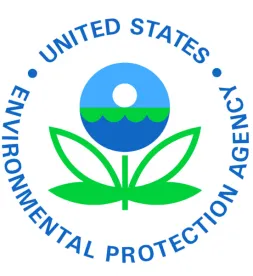On March 10, 2016, the U.S. Environmental Protection Agency (EPA) filed a motion to dismiss for lack of subject matter jurisdiction and a supporting memorandum of law (Memorandum) in Anderson v. McCarthy, Case No. 3:16-cv-00068 (N.D. Cal. filed Jan. 6, 2016). In support of its motion, EPA states that the District Court lacks jurisdiction because three of the four claims stated in the complaint “seek review of a guidance document that does not constitute ‘final agency action’ reviewable under the Administrative Procedure Act [APA] or the Federal Insecticide, Fungicide, and Rodenticide Act [FIFRA],” and that the remaining claim “which asserts a failure to regulate under and enforce [FIFRA], fails because Plaintiffs have not identified a clearly imposed duty on the part of EPA to take some discrete action to regulate under or enforce the Act.”
The Complaint was filed by a coalition of U.S. beekeepers, farmers, and affiliated non-government organizations (Petitioners) who requested that the District Court provide declaratory relief stating that seeds coated with neonicotinoid insecticides are not eligible for the “treated article” exemption under FIFRA. Petitioners argue, in part, that the following language from EPA’s 2013 Inspection Guidance (Guidance) provides a new interpretation of the scope of the “treated article”:
Inspectors may also take into account any locations of treated seed planting when identifying locations of potential pesticide sources. Note: Treated seed (and any resulting dust-off from treated seed)may be exempted from registration under FIFRA as a treated article and as such its planting is not considered a “pesticide use.” However, if the inspector suspects or has reason to believe a treated seed is subject to registration (i.e., the seed is not in compliance with the treated article exemption), plantings of that treated seed may nonetheless be investigated. The Complaint argues that this Guidance improperly expanded the scope of the treated article exemption and was in effect an unlawful rule issued without prior notice and comment. The Complaint seeks an order from the District Court declaring, in part, that “unregistered seeds do not fit within the ‘treated article’ exemption from pesticide regulation in 40 CFR § 152.25(a) and must be regulated as pesticidal products under FIFRA.”
With regard to the scope of the treated article exemption, EPA in its Memorandum states that the language from the Guidance, which is for the use of inspectors and not the general public, is:
[A] far cry from prescribing the law or policy as to exemption of treated seed as a treated article under 40 C.F.R. § 152.25(a), as they in no way implement, interpret, or prescribe law or policy. Instead, this language in the Inspection Guidance is but one recommendation to inspectors who are investigating all possible sources of pesticides, including treated seed.
EPA further argues that the “note” in its Guidance is “nothing more than the unremarkable reiteration of EPA’s longstanding view of the treated article exemption in 40 C.F.R. § 152.25(a).” EPA states that the applicability of the treated article exemption has been discussed publicly by EPA since 2003 in an document published jointly by EPA and Canada Pest Management Regulatory Agency entitled “Harmonization of Regulation of Pesticide Seed Treatment in Canada and the United States.” In that document, EPA states that it “plainly indicates that where the conditions of the treated article exemption are met, ‘[s]eeds for planting which are treated with pesticides registered in the U.S. are exempt from registration as pesticides and may be freely distributed and sold within the U.S.’” Thus, EPA states that Petitioners “have failed to meet their burden to demonstrate that the Inspection Guidance (or any other action) constitutes “final agency action” as that term is used in the APA, and thus they have not met their burden of demonstrating jurisdiction.”
On March 16, 2016, Intervenor-Defendants CropLife America, the American Seed Trade Association, the American Soybean Association, the National Cotton Council of America, the National Association of Wheat Growers, the National Corn Growers Association, and the Agricultural Retailers Association filed to join EPA’s Motion to Dismiss.




 />i
/>i

